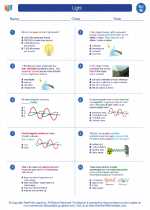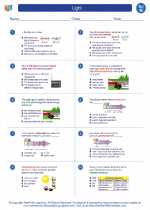Parasitism
Parasitism is a type of symbiotic relationship in which one organism, the parasite, benefits at the expense of another organism, the host. The parasite lives on or inside the host and obtains its food and nutrients from the host, often causing harm to the host in the process.
Key Concepts
- Parasite: An organism that lives on or inside another organism (the host) and obtains its food and nutrients from the host.
- Host: The organism that is being fed upon or inhabited by the parasite.
- Parasitic Relationship: The relationship in which the parasite benefits at the expense of the host.
- Types of Parasites: There are different types of parasites, including ectoparasites (parasites that live on the external surface of the host) and endoparasites (parasites that live inside the host).
- Effects on Host: Parasites can have various effects on the host, ranging from mild irritation to severe disease and even death.
Study Guide
When studying parasitism, it is important to understand the following key points:
- Define parasitism and explain the roles of the parasite and the host in this type of symbiotic relationship.
- Identify examples of parasites and their respective hosts, and describe the specific interactions between the parasite and the host.
- Compare and contrast ectoparasites and endoparasites, providing examples of each type.
- Discuss the potential effects of parasitism on the host, including physical harm, disease transmission, and potential strategies for the host to defend against parasites.
- Examine the ecological importance of parasitism and its impact on the balance of ecosystems.
By understanding the principles of parasitism and its various implications, we can gain insights into the complex interactions between organisms in nature and the ways in which these interactions shape ecological communities.
.







